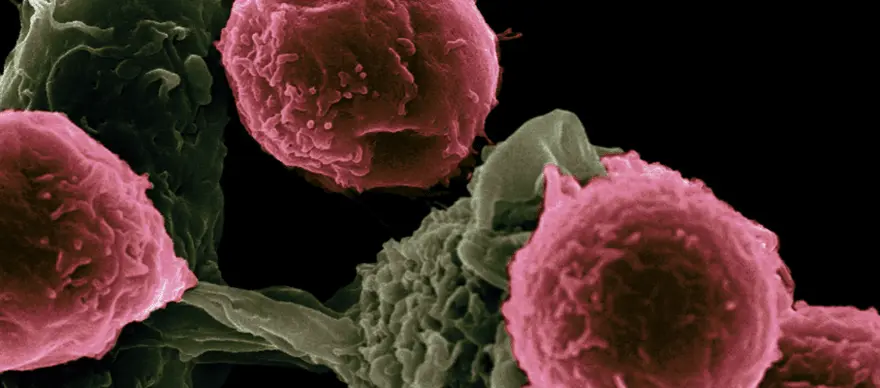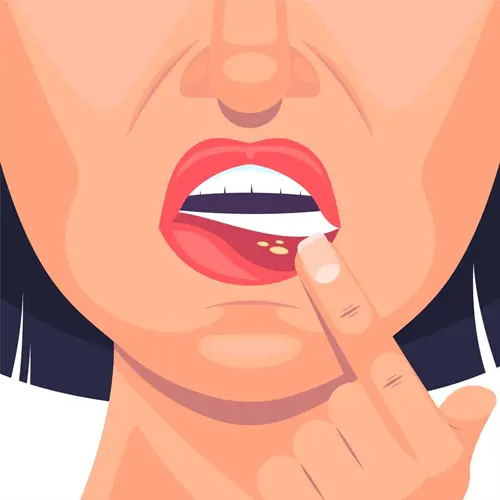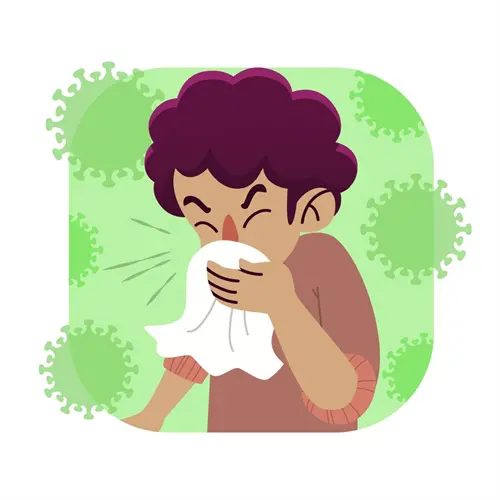Health Wellness
Signs & Symptoms Of HIV in Men & Women
133038 Views
0

Overview
HIV is an acronym for the Human Immunodeficiency Virus. It is a virus that can be found in human blood, semen, vaginal fluids and breast milk. The virus destroys specific cells of the body's immune system, thus, destroying the entire immunity system altogether.
Even though most individuals are aware of HIV, they may be unaware of how it might impact the body. Immunodeficiency is a condition that HIV can cause. Throughout the progression of the disease, various symptoms of HIV may start showing and can also lead to other illnesses.
Once HIV invades the body, it immediately attacks the immune system and steadily weakens the body's natural defences.
Immune system
The immune system’s principal function is to protect the body from disease. White blood cells guard the body against pathogens such as viruses, bacteria, and parasites. Symptoms of HIV in the early stages may be insignificant and are often ignored. Acute HIV is the earliest stage of the disease and is called acute infection.
Symptoms of HIV Infection
Symptoms of HIV might vary from person to person, although the initial signs of infection often start showing within the first one to two months. Many patients usually develop acute flu-like symptoms as the body's natural response to a viral infection. This particular period is known as "seroconversion."
During this time, it's very important to figure out if HIV is the main reason because your risk of transmission is very high, particularly through physical or sexual comtact. However, for a final diagnosis, one needs to undergo an HIV positivity test.
When HIV enters the body for the first time, it is called a "primary infection." Some researchers use the term 'Acute HIV Infection' to describe the duration of infection and antibody production. Typically, the human body develops such antibodies in 6 - 12 weeks.
Newly infected individuals with HIV may experience flu-like symptoms that last for a few days, like high fever, night sweats, cough, and rashes. Others may experience no symptoms or very mild signs. As symptoms of HIV in men and women are so general, it can be quite difficult to make a correct and definite diagnosis of HIV. Any other virus could also be causing your symptoms if you were exposed to a high risk of contracting it through sexual contact.
When Do The Initial Symptoms Of HIV Appear?
The first symptoms of HIV can show anywhere between 2 and 6 weeks after infection. In most patients, symptoms progressively disappear over the next few weeks; however, some patients experience little or no symptoms of HIV in the mouth.
HIV develops in three stages, including:
• The acute infection phase in the initial few weeks after transmission
• Chronic stage or clinical latency
• AIDS
1. Acute infection
During this stage, an HIV-positive individual may not show many acute symptoms, but the levels of virus in the body are typically high due to its rapid replication.
Signs of acute infection can include the following:
- Fever
- Chills
- Sweating at night
- Diarrhoea
- Headache
- Muscle pain
- Joint pain
- Throat discomfort
- Rashes
- Swollen lymph nodes
- Oral and genital ulcers
- Upset stomach
- Weight loss
- Persistent cough
2. Chronic Stage
The next phase is known as the chronic infection phase. It can last up to ten to fifteen years. During this stage, HIV-positive people may or may not show any symptoms.
As the infection progresses, the CD4 count declines significantly, which can result in the following symptoms of HIV:
- Fatigue
- Shortness of breath
- Cough
- Frequent Fever
- Swollen lymph nodes
- Weight loss
- Diarrhoea
- Rash
- Vomiting
- Repetitive yeast infections in the mouth or genital area
- Pneumonia
- Shingles
3. AIDS
When AIDS occurs, the immune system is severely compromised. You will be more susceptible to infections that wouldn't normally affect a healthy individual. These are referred to as opportunistic infections or cancers. Among the possible AIDS symptoms are:
- Persistent fever
- Chronic lymph gland enlargement, mainly in the armpit, neck, and groin
- Chronic fatigue
- Sweating at night
- Oral, genital, or anal sores, patches, or lesions
- Rashes, bumps, or sores on the skin
- Frequent or chronic diarrhoea
- Rapid weight loss
- Neurological issues include difficulties in concentration, memory loss, and confusion
- Anxiety/depression
- Chills
How Can A Person Develop HIV?
HIV is spread through body fluids such as:
- Blood
- Semen
- Vaginal Fluids
- Rectal fluids
- Breast milk
The following are the possible sources of HIV infection:
- Having unprotected sex
- Sharing syringes to inject drugs, body piercing or tattooing
- Using a needle contaminated with HIV-infected blood
- Putting HIV-contaminated blood, sperm, or vaginal secretions into open wounds or sores
- Blood transfusion
- Pregnancy, childbirth, and breastfeeding all have risks of HIV transmission to an unborn child.
Hiv Symptoms in Men
Some of the male-specific symptoms in case of contracting HIV include:
Infection
An ulcer on the penis is a common HIV symptom in men. They are caused by a concurrent sexually transmitted infection (STI), such as syphilis or the herpes simplex virus, or by chancroid.
Hypogonadism, a condition associated with low sex hormone production, can develop in people with poorly managed HIV or even long-term HIV. Other hypogonadism symptoms a male patient may experience usually involve: erection problems, decreased sperm count and hair loss in the body.
Gynecomastia, or abnormal swelling of breast tissue, can indeed occur in men with HIV-associated hypogonadism.
Prostatitis
While peeing, individuals may experience pain or burning. This is most often a side effect of a sexually transmitted infection such as gonorrhoea or chlamydia. It could indicate inflammation of the prostate, a small gland positioned beneath the bladder. Prostatitis is the medical term for this condition. A bacterial infection can sometimes cause it.
Prostatitis can also cause the following symptoms:
- Ejaculation leads to pain
- Peeing more frequently than usual
- Pee that is cloudy or bloody
- Pain within the bladder, testicles, penis, or between the scrotum and the rectum
- Pain in the lower back, abdomen, or groin
Proctitis
Rectal inflammation, also identified as proctitis, is a symptom that is frequently associated with HSV-2 in HIV-positive MSM. Proctitis can cause pain, anal ulcers, rectal bleeding, mucus discharge, diarrhea, and tenesmus which gives a continuous sensation that one needs to defecate even when the bowel is empty.
Penile Cancer
HIV infection increases the risk of penile cancer eightfold, with high-risk strains of the human papillomavirus being directly linked to 80% of cases (HPV).
Hiv Symptoms in Women
The onset of HIV symptoms can be minor and quickly ignored. However, even though no symptoms are present, an HIV-positive person can still transmit the virus to others. There are certainly common symptoms that only women experience, usually in the subsequent stages of infection:
Problem with Periods
Individuals may experience lighter or heavier period bleeding, missed periods, or suffer from severe PMS. These issues may be triggered by stress or other STDs that are common with HIV. They may also occur as a consequence of the virus's impacts on the immune response, which may alter the female hormones.
Pelvic Inflammatory Disease
This condition often causes pain in the lower abdomen. This disease is an infection of the uterus, ovaries, and fallopian tubes. PID can also result in:
- Unusual vaginal discharge
- Periodic irregularities
- Sexual discomfort
Yeast Infections in The Cervix
Many HIV-positive women get these frequently, maybe several times a year. When a female patient has a yeast infection, the individual may experience:
- Vaginal discharge which is thick and white
- Pain while having sex
- Pain while peeing
- Vaginal pain or burning
Common Symptoms of HIV for Both Genders
Both men and women may experience flu-like symptoms 2 to 4 weeks after being infected. It signifies that the body is reacting to the virus. This could last for a few weeks. Among the symptoms of a new HIV infection are:
- Fever
- Fatigue
- Muscle pain
- Sweating at night
- Rash
- Swollen lymph nodes
Most of the time, men and women living with HIV can develop thrush, also known as oral candidiasis. It involves inflammation and a thick white coating forming on the interior of the mouth, tongue, and throat. A few individuals show no signs of HIV infection at all.
AIDS is the most advanced stage of HIV infection. AIDS symptoms can include:
- Quick weight loss
- Fever that comes back
- Excessive night sweating
- Extreme and unexplained fatigue
- Swelling of the lymph glands in the armpits, groin, or neck for an extended period
- More than a week's worth of diarrhea
- Mouth ulcers, anus, or genital ulcers
- Pneumonia
- Blotches of red, brown, pink, or purple on or under the skin, or inside the mouth, nose, or eyelids
- Memory loss, depression, and other neurologic disorders are all common.
Another common symptom is Oral thrush which is one of the first opportunistic infections in HIV patients. It is called "opportunistic" since it takes advantage of a person's weakened immune system to infect them.
When an individual's immune system is compromised, the pathogen can disperse through the windpipe, lungs, and even the bloodstream.
Symptoms of HIV in the Mouth:
People who have HIV often develop oral problems. Due to HIV-induced immunodeficiency, you may be more susceptible to gum disease (gingivitis or periodontitis), mouth infections, and open wounds.
Oral issues can cause discomfort, embarrassment, and low self-esteem. You should be aware of these five symptoms of HIV in the mouth.
- Oral Warts
- Hairy Leukoplakia
- Oral Fungus
- Canker Sores
- Gum Infection
Conclusion:
HIV testing is essential for an accurate diagnosis. Thus, if you think you may have been infected by HIV or keep changing sexual partners very frequently, you should get tested soon, even if any symptoms of HIV haven’t shown yet.
Lowering The Risk of HIV
However, not all hope is lost. The following are important HIV prevention strategies:
- Using a condom accurately when getting intimate
- Taking pre-exposure prophylaxis (PrEP) if someone is at a higher risk of contracting HIV
- Regular check-ups determine the risk of contracting HIV and other STIs —having an STI can mean a higher risk of contracting HIV.HIV has no known cure as of yet. However, an early diagnosis and timely treatment can significantly delay the advancement of the disease and increase the quality of life.
ART or Antiretroviral therapy (ART) medications will help keep an individual healthy and prevent one from transmitting HIV to others. If individuals take the drugs as directed, the person can remain in the initial cycle for years and perhaps even live a normal life.
Everyone between the ages of 13 and 64, regardless of risk, should get tested for HIV at least once, according to the Centers for Disease Control and Prevention (CDC). Testing can be done in the privacy of a medical practitioner's clinic, at home, or at a test facility.























 WhatsApp
WhatsApp